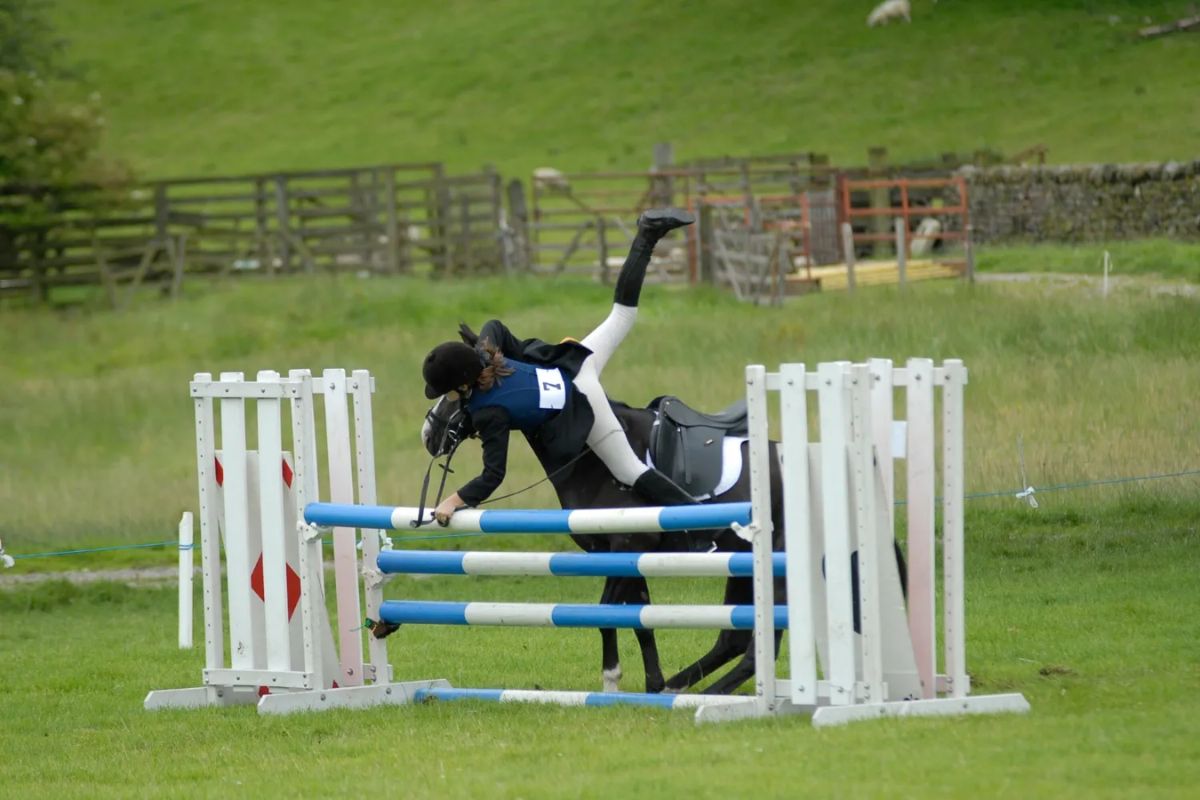Menu

Horse riding can be a dangerous sport, but despite the risks associated with equestrian activities, we don't know much about the causes of our falls. You can seriously injure yourself during a fall, and loose horses can easily cause harm to themselves or others. To understand the reasons behind our falls, researchers David Marlin and his colleague Jane compiled an online survey, disseminated through Facebook. The questions focused on the number of falls and the circumstances surrounding the incidents. The researchers received responses from 1977 riders who all had fallen off a horse within the past year.
David Marlin has dedicated his entire life to working with horses and is a fervent advocate for equine health and welfare. He is chairman of the UK National Equine Welfare Council. He also collaborates with FEI on various climate-related projects, and was part of the preparations for Team England for the 2020/2021 Tokyo Olympics.
Also check out: Poles & cones – Creating variation in the daily training
The majority were women and 90% were between the ages of 18-55. The most common activities the riders engaged in were trail riding, dressage, jumping, and eventing. Half of all riders had fallen off at least once. A fall was defined as contact with the ground. According to the survey, 84% of riders had fallen off at least once, and half of these had fallen two or more times. Accidents occurred most often in the darker months, between October and December.
Accidents didn't happen nearly as often during competitions, but primarily during regular rides, during flatwork training or jumping practice. The most common cause for the rider falling off the horse was the horse suddenly changing direction. It was rare for both horse and rider to fall simultaneously. It occurred 10 times more often that only the rider fell off, while only 11% of incidents resulted in both parties falling.
Most riders fell off the horse from either the left or right side. It wasn't as common for the rider to tumble forwards or backwards over the horse. Back injuries were the most frequently reported injury. A large number of these back injuries were severe and occurred more often than other injuries. After back injuries, injuries to shoulders, hips, and arms were most common. A relatively large number of riders also suffered severe degrees of head injuries despite wearing riding helmets.
Also check out: Liberty Training – Do you dare lose control?
David Marlin concluded that falls occur within all equestrian activities, but especially when we're trail riding or training the horse at home. This might be because the rider is more relaxed. They may not think it's necessary to use protective equipment like a back protector, David Marlin explains. Falls also often occur within jumping or eventing. The cause might be a lack of communication between rider and horse, where the horse's conflict behaviour and lack of clear signals may be the cause of a fall. Another cause could be the rider being unstable in the saddle and lacking the correct balance.
In the future, it could be worthwhile to investigate the underlying causes of why we fall off the horse, David Marlin suggests. Some factors that might influence the number of falls could be the way we keep the horse. It could also depend on the training programme we use with the horse. The horse's age and breed might also be included in future studies of which factors influence the number of falls.
What does this tell us? If you're a woman, and if you ride, you're almost certainly going to fall off at some point in a year to a year and a half, says David Marlin. It's most likely not going to happen while you're at a competition, but instead when you're out riding, when you least expect it. This isn't much of a surprise, as we spend much more time riding in our leisure time or during training. If you want to reduce the risk of injuries, it's a wise investment to use safety gear. A properly fitted safety vest and a correctly sized helmet, with the strap fastened, should be the standard. It should be used every time we ride, not just when we are at competitions, recommends David Marlin.
Also check out: Avoid excess training: Remember to give your horse a break